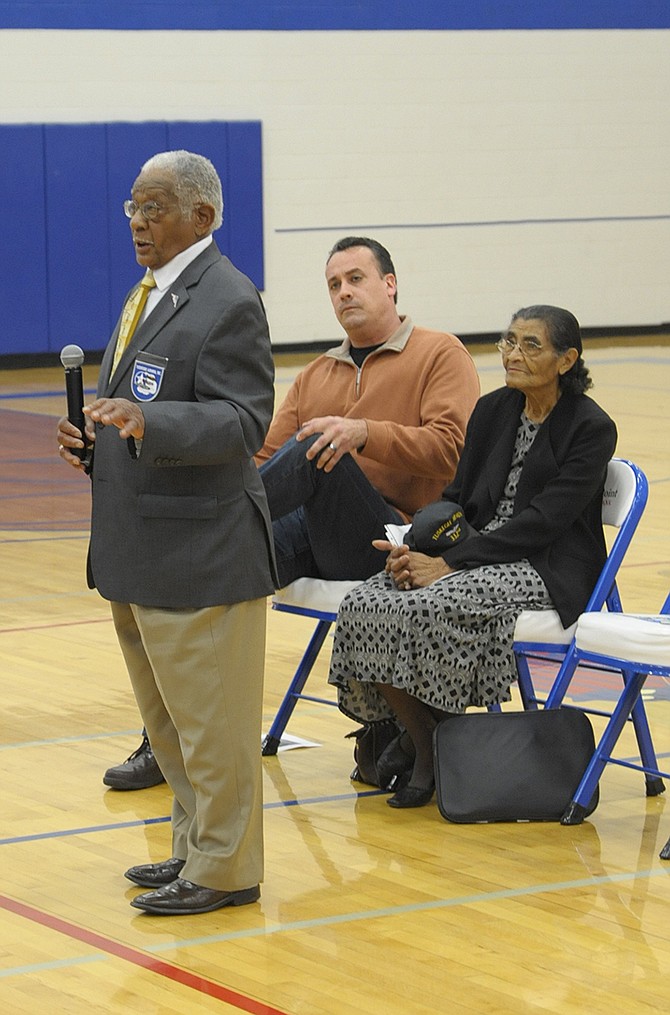RUSSELLVILLE, Mo. -- As students at Russellville High School passed around medals and photos, James Shipley discussed his nearly three-year service as a mechanic with the Tuskegee Airmen.
At age 92, Shipley came from his Tipton home with his wife of 65 years, Mildred. The pair will travel next month back to Tuskegee, Alabama, for the 75th reunion of the 332nd Fighter Group, the first African-American military aviators in the U.S. armed forces.
Most stories from the fighter squadron, nicknamed "Red Tails," come from the pilots. So Russellville alumnus Jeremy Amick thought Shipley's story needed to be told, too.
In addition to coordinating this event during Black History Month, Amick said his next book will be about Shipley's experiences.
For the students at the school, listening to Shipley's accounts firsthand should have a lasting impact, social studies teacher Zac Blanton said.
The social studies and English departments are cooperating on a long-term project related to civil rights. Shipley's visit, though unexpected, fit well, he said.
"He hit the nail on the head with the stuff we're learning," Blanton said. "I saw the students' heads nodding."
Some of Shipley's stories recalled the burnt canopies from the falling ash of a Mt. Vesuvius eruption, how he preferred the P-51 to the P-40 for maintenance, and guarding his plane overnight so no one took a piece from his craft when parts were scarce.
"I worked on three different planes and sent three pilots back to the states safe and sound," Shipley said.
After the pilots returned from their successful missions, it was up to Shipley and the other mechanics to get their aircraft repaired and ready for the next mission.
He said early on, pilots who flew too close to the ground would return with rifle holes underneath the plane. The holes were so small, the crew resorted to patching them with beer cans, Shipley said.
The mechanics and ground crew were up all night many times, but especially the night before attacking Berlin, he remembered.
His favorite memory, he said, was learning to work together as a team. Similarly, he said his strongest memory is the day they learned the war was over, which meant the team would soon be broken up.
Students particularly were interested in the discrimination he faced.
"We had to prove that we could do it," Shipley said.
Many in military and government leadership said the black soldiers "didn't have the brain for it, that we couldn't follow orders ... or that we would desert."
"In the end, they found out we gave good protection to the bombers," he said. And white bomber squadrons began to request their protection, he said.
First lady Eleanor Roosevelt visited the Tuskegee Army Air Field, where she took a ride in a fighter with one of the African-American pilots. After she landed, she said, "You're ready," Shipley relayed.
Not long after that, the first squadron from Tuskegee was sent to the European theater. They were assigned to patrol non-combat areas, Shipley said. And then they were accused of not being able to do the job, because they hadn't shot down any German airplanes, he said.
"Yes, we were mistreated," Shipley said. "But time heals all wounds.
"I look at a man by what's in his heart, not what color he is."

